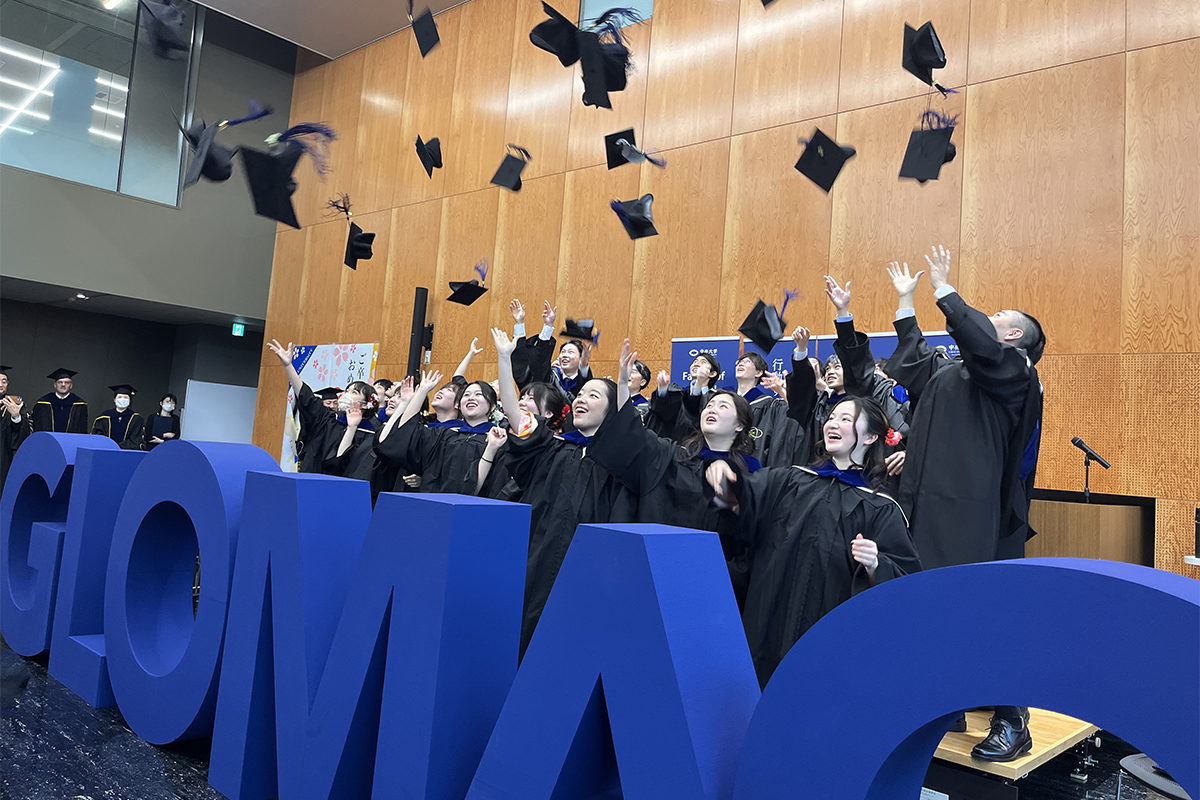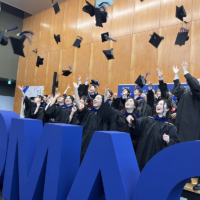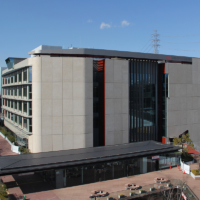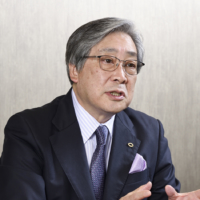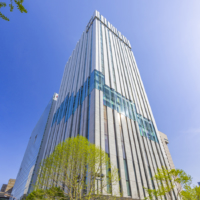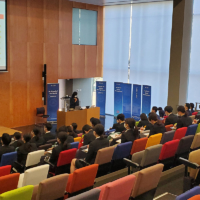Chuo University in Tokyo, which has almost 26,000 undergraduate students and over 1,140 graduate students, as well as over 720 full-time teachers, was originally founded in 1885 as a law school named Igirisu Horitsu Gakko (English Law School).
With a founding spirit of “Fostering the Ability to Apply Knowledge to Practice,” 18 young lawyers established the school with an aim to improve the country’s legal systems. Over the 138 years while the school transformed into a comprehensive educational institution consisting of eight faculties, eight graduate schools and two professional graduate schools, four affiliated high schools, two affiliated junior high schools and nine research institutes, the founding spirit has always been at the core of the schools’ practical education.
Urban and global campuses
For Chuo University, this year represents a milestone when the Faculty of Law and the Graduate School of Law move to the new Myogadani Campus in Bunkyo Ward from the Tama Campus in the western suburb of Hachioji. At the same time, the new Surugadai Campus in Chiyoda Ward will host two professional graduate schools, the Law School and the Business School. This will reshape Chuo University’s urban campus.
The aim of the urban campus is to concentrate all the resources the university has in the fields of law and business in one area, making it easier for students and stakeholders outside the university to access, providing opportunities for new partnerships and collaborations.
The Tama Campus is moving toward becoming a global campus where both domestic and international students can gain various opportunities to experience different cultures, while focusing on values represented by diversity and inclusion, the U.N. sustainable development goals and other global standards they need to be aware of to acquire skills to create new values in society.
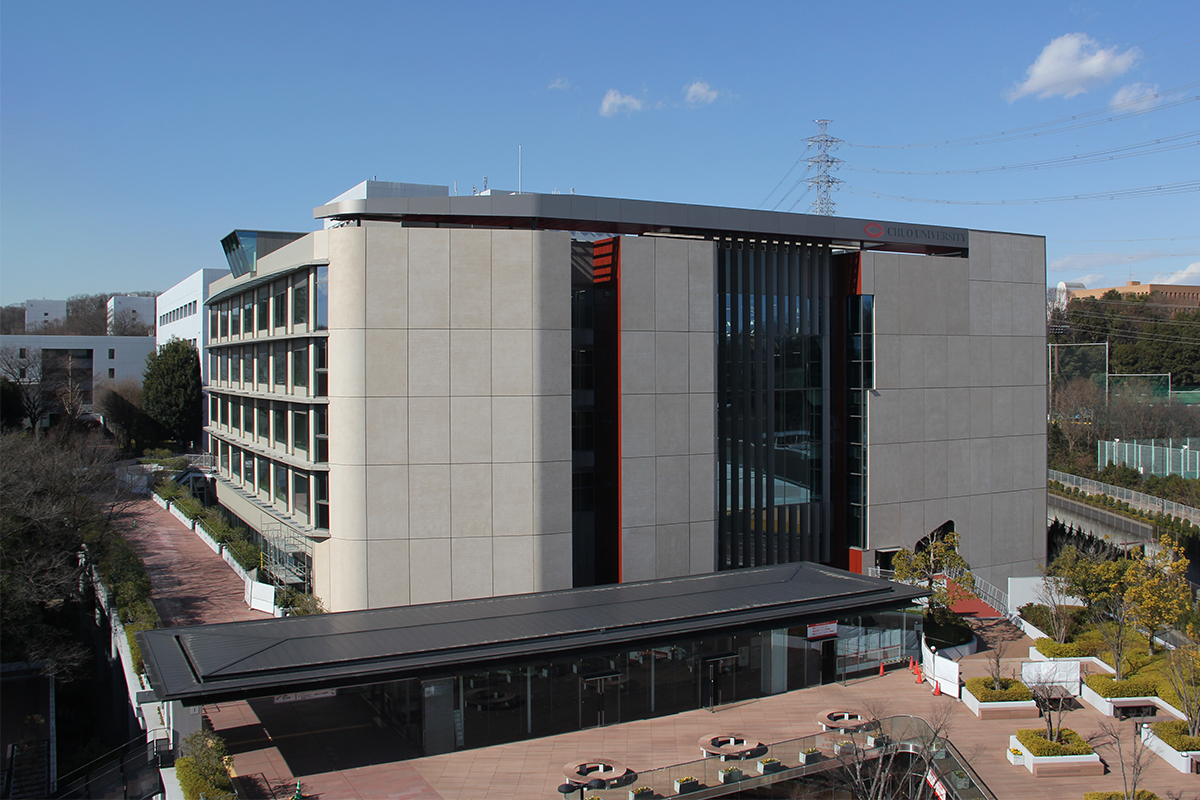
Plan for new faculties
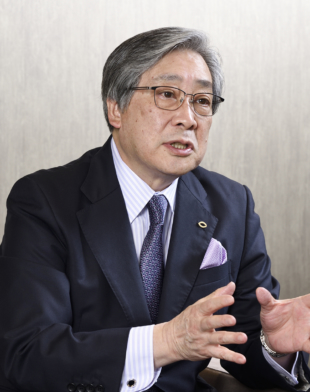
“Partly because there is some extra space at the Tama Campus due to the transfer of the Faculty of Law and the Graduate School of Law, we are planning to establish new faculties.
“Three proposals are being considered: a combination of sports and digital technology, green and digital technology, and design and communication,” said President Hisashi Kawai.
“These fields are where we have many achievements or see potential growth and the possibility of collaborations with industries and communities,” he said.
Entrepreneurship program
Through these changes and efforts, Chuo University is aiming to become an “open university.” Kawai touched on two elements that the university is focusing on to realize this goal. One is to serve as a hub to promote education for highly skilled professionals, including recurrent education based on partnerships among industry, government and academia. The other is to use information and communication technology (ICT) to overcome restrictions of time and space to support education, research and social contribution.
One of the efforts to embody the first element is the establishment of programs that nurture entrepreneurship. In the Faculty of Commerce, the Social Entrepreneurship Program was launched in 2019 based on a partnership agreement with three villages in the mountainous Okutama area bordering Tokyo and Yamanashi Prefecture. The program, in which students spend two years creating new businesses using regional resources, aims to nurture the ability to pursue the SDGs in business practices.
In the Faculty and Graduate School of Science and Engineering, acquisition of solid expertise, high English proficiency and entrepreneurship is incorporated into the curriculum at all levels from the first year of the undergraduate program to the second year of the master’s program. “What you learn and think in this faculty has a good chance of leading to concrete know-how to create new products or services,” Kawai said, with the belief that fostering talented people who are ready to contribute to global society will help accelerate the social implementation of new technologies.
Effective use of ICT
For the university to be more open to society, it promotes the effective use of ICT. By using online solutions, as well as a broad network of people, the university invites a variety of guest lecturers from remote locations, allowing students to interact with society.
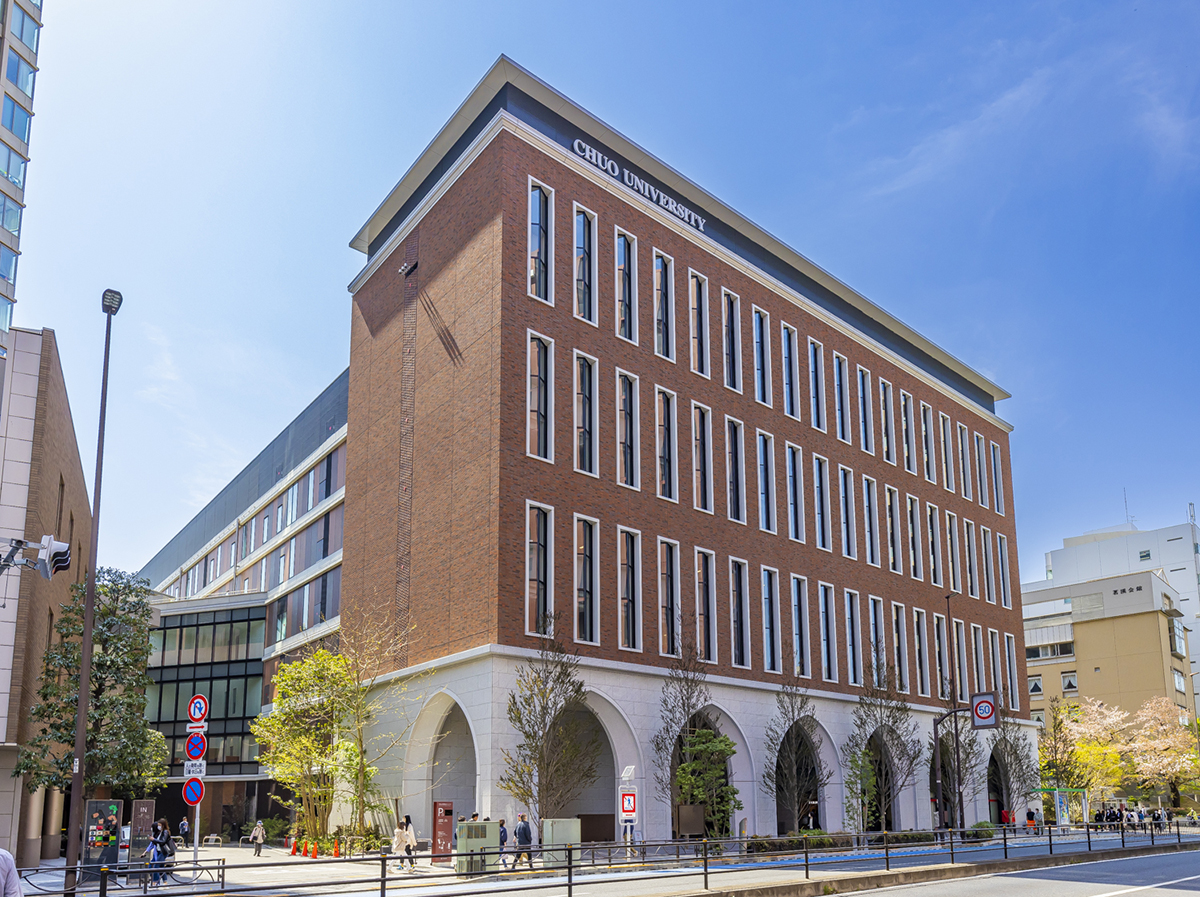
The university also provides education through collaboration with other universities at home and abroad using online tools, enhancing diversity and promoting the exchange of people, knowledge and experience. This allows students to reach more resources than the university alone can offer.
Using communication tools in classrooms can remove the barrier between students and lecturers, while using them outside the classrooms nurtures an environment for peer learning, accelerating multidirectional communication and enhancing students’ initiative in learning.
By giving lectures using digital technology in advance, class hours can be used for advanced learning based on group work and other means that are better conducted face to face. This way, students can study more efficiently and reinforce their knowledge and skills faster.
“The promotion of the use of ICT in education is something that we are good at because various efforts had been made before the COVID-19 pandemic to introduce online or remote solutions to maximize educational effects,” Kawai said. The university also published a handbook to share its know-how on catering to student needs, ensuring the quality of learning and promoting advanced education with other universities.
Global FLP program
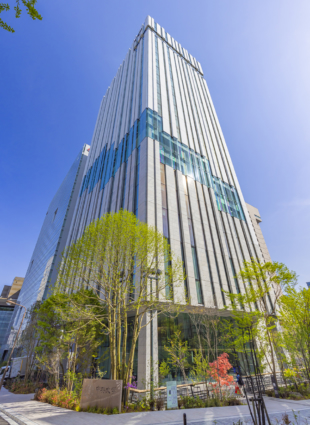
Chuo University also makes various efforts to open itself up more to the world. There are many opportunities for studying abroad, both short- and long-term, via partnerships with universities and other institutions. About 100 students attend six-month or one-year programs to study abroad each year. The credits they acquire can be applied to Chuo. In addition, 250 to 300 students attend short-term study abroad programs every year, spending about a month at schools in the United States, Australia, New Zealand and other countries.
Even on campus, students can be exposed to an international environment through such programs as the Global Faculty Linkage Program that accepts undergraduate students from all faculties and offers courses taught in foreign languages with the aim of fostering “global professionals” who can demonstrate in global society the specialized knowledge and skills they have acquired through practical education at Chuo, which is a tradition of the university.
The university is also a member of United Nations Academic Impact, which is a global initiative run by a network of institutions of higher education with the U.N. to collectively contribute to solving issues the world is facing. Through such a network, Chuo continues to build ties with universities across the world. Kawai expressed his enthusiasm in forming partnerships with more universities in Japan and elsewhere to establish double degree or joint degree programs in the near future.
“We would like to increase classes taught in English at graduate schools as well and promote international exchange further. I think the university being global essentially means seeing academic work itself with a global point of view. Much of our academic work at Chuo already contains these global elements. So we would like to improve quality rather than quantity when it comes to our exchange programs and other projects,” Kawai said. “It is also necessary to set the conditions under which foreign students will be able to take part in internships offered by Japanese companies. We would like to work on that,” he added.
Biz school offers support from classes to job hunt
Chuo University’s Faculty of Global Management, whose motto is “Be Ahead of the World,” was established in 2019 on the Tama Campus and is considered the most advanced department in terms of foreign student ratio. About 10% of the students opt for the entrance exam that does not require Japanese proficiency.
New students are accepted twice a year in fall and spring to fit the needs of those who wish to start their studies at Chuo in September, as well as those who wish to enroll in April. More than 70% of the classes are taught in foreign languages (mainly in English), and students can complete their degrees taking classes taught only in English. However, international students are required to take Japanese-language classes.
The aim of this department is to foster young business leaders and attract talented faculty and highly motivated students from all over the world. The faculty has three key features. First, its learning structure is focused on the systematic acquisition of expertise in business management and economics, as well as global communication skills. Second, students can carry out their studies in foreign languages, especially English. Third, in addition to the foreign language exchange program, the department offers company visits and internship programs as part of the overseas short-term exchange programs.
The Faculty of Global Management conducted a campus-wide seminar last year in Japanese and Chinese to share information on job hunting in Japan, including the basic timeline, visa concerns, interview etiquette, how to write a personal statement, and how to research industries and companies. About 90 students attended the seminar, leaving positive feedback.
The school’s continued efforts to be open to society have resulted in a large international presence on campus. There were 879 students from 29 countries and regions across almost all the faculties and graduate schools as of October 2022.
To support their campus life and promote cross-cultural exchange, Chuo has created G-Square, a unique lounge where Japanese and international students mingle and socialize. It provides information on study abroad programs, opportunities to interact with students with diverse backgrounds, and space for student-planned activities and events for cultural and language exchanges.
Most of the face-to-face events were canceled during the COVID-19 pandemic in 2020 and 2021, but activities in G-Square have since resumed. Campus tours for new foreign students and Japan Day events are regularly held to offer opportunities to experience Japanese culture.
Chuo is also aware that many foreign students seek career opportunities in Japan after completing their studies. The university offers career support programs for all students, with some reserved for students from overseas, from the first year through the fourth year.
The next-generation leaders’ program is a hands-on, work experience program. Students can experience internships at participating companies and attend lectures on various business topics provided by company officers on campus. In this program, students are expected to feel and understand the gap between the ideal and the reality of working at a Japanese company.
The project-based-learning course invites participation by staffers from Japanese companies and allows students to work on various themes in groups. By making plans and giving presentations, the students get a chance to study business procedures and methods from the perspectives of Japanese enterprises. These programs are offered for both Japanese and international students in their first and second years of study.
In the third year, programs tailored to give foreign students more detailed know-how about job hunting in Japan are offered. In addition to courses on learning Japan’s job-hunting culture, the kinds of qualities Japanese companies seek in candidates, and the unique hiring processes, there are programs that teach students how to apply for internships, conduct self-analysis, write up documents that need to be submitted to companies, and more.
There are also other programs in Japanese and Chinese provided in collaboration with other universities, as well as seminars organized by seven universities that gather companies who are actively recruiting foreign students, offering opportunities to get to know the various companies and industries.
For seniors, recruiting events are held on campus to match prospects with companies. These events ensure that students aren’t rejected merely based on their transcripts and to have face-to-face interviews so recruiters can deepen their understanding of the applicants’ character and enthusiasm.
The Career Support Center also emphasizes the importance of taking individual approaches to career planning and job-seeking. It has counselors who can conduct individual interviews and counseling in English.
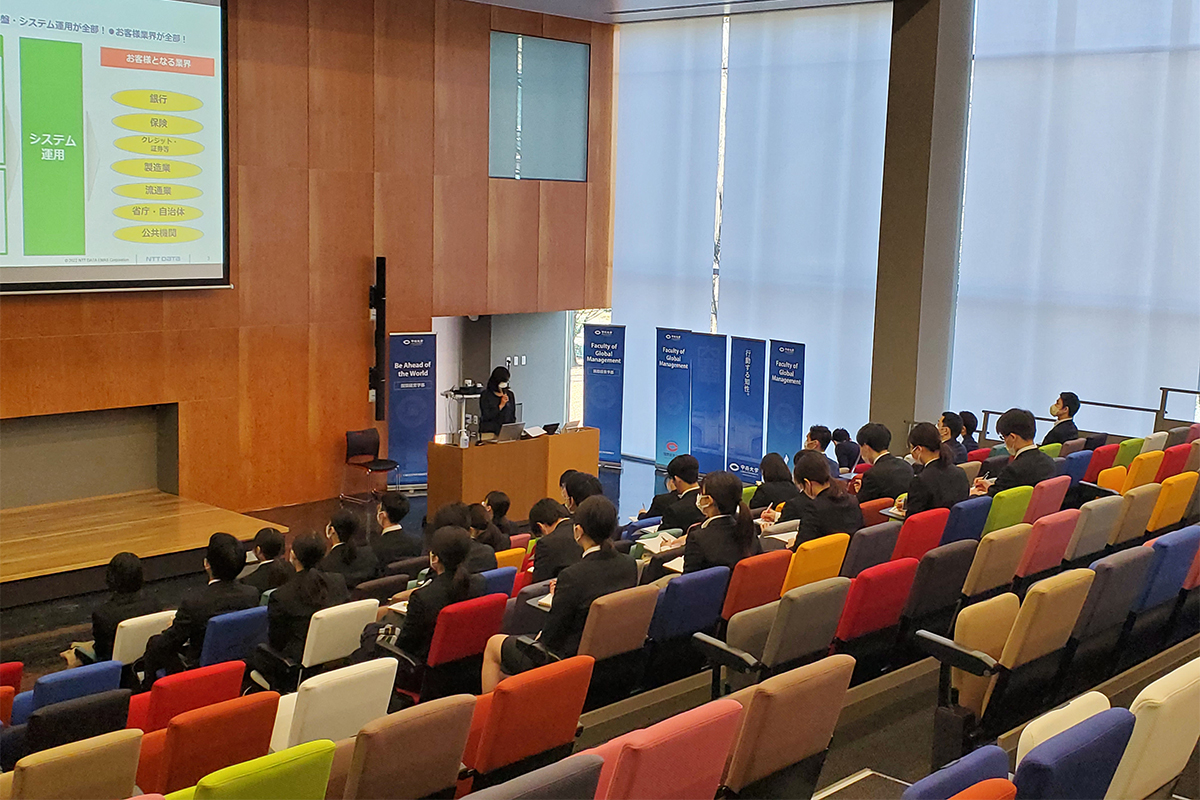
To support the growing number of students entering Japan, a new international residence was opened in 2020 at the Tama Campus called International Residence Chuo, where events are held regularly to foster communication among students. The dormitory provides shared accommodations, with each unit consisting of six private rooms in addition to shared facilities, such as a living room and a community space. The university has another international residence near Seiseki Sakuragaoka Station on the Keio Line, called the Seiseki International Residence. They accept both Japanese and international students.
Chuo has overseas offices in Hawaii, Bangkok, Shanghai and Hanoi. The Hanoi office, which opened in September 2022, is expected to be a public relations locus for Chuo in Vietnam, which sends many students to study in Japan. The Japanese International School in Hanoi, which opened in 2016, is Chuo’s first international partner school, integrating K-12 education modeled on the Japanese education system. It will start sending several high school graduates with outstanding academic results to Chuo this fall or next spring.
This page is sponsored by Chuo University.
Chuo University

Address: 742-1 Higashinakano, Hachioji-shi, Tokyo 192-0393, Japan
Tel: +81-42-674-2050
E-mail: [email protected]
URL: https://www.chuo-u.ac.jp/english/



